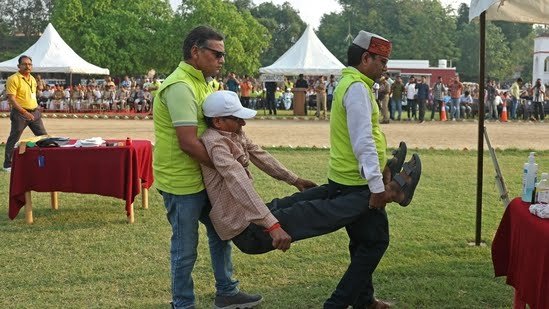India has postponed a major civil defence exercise, “Operation Shield,” initially planned for May 29 in states bordering Pakistan, including Rajasthan, Gujarat, and Jammu and Kashmir. Government statements cited “administrative reasons” for the delay, with a new date to be announced later. This drill aimed to prepare local administrations and volunteers for scenarios like air raids, drone attacks, and missile strikes along India’s western border.
Indian Postpones Border Civil Defence Drill follows an earlier nationwide civil defence exercise held on May 7, just hours before Operation Sindoor. The Ministry of Home Affairs had directed 244 districts to participate in comprehensive drills, including blackout exercises, air raid sirens, and evacuation protocols, designed to prepare civilians for wartime emergencies. Following these exercises, authorities identified critical gaps in civil defence preparedness in vulnerable areas and issued instructions for necessary improvements on May 9.
Understanding India’s Operation Sindoor
Operation Sindoor was India’s direct military response to the devastating April 22 terrorist attack in Pahalgam, Kashmir, which tragically killed 26 civilians. This marked the worst attack on civilians since the 26/11 Mumbai strikes.
In the early hours of May 7, India launched pre-dawn strikes, bombing nine terror camps in Pakistan and Pakistan-occupied Kashmir (PoK) and reportedly killing at least 100 terrorists. These strikes ignited a series of intense cross-border attacks and counterattacks, involving fighter jets, missiles, armed drones, and heavy artillery and rocket duels. A notable counterattack by the Indian Air Force on the night of May 9-10 targeted 13 Pakistani air bases and military installations. After four days of intense fighting, military hostilities ceased on May 10, as both nations reached an understanding to de-escalate.
India Postpone Border Civil Defence Drill exercise, citing “administrative reasons,” paints a nuanced picture of the ongoing security landscape along iats western border. While the official explanation points to logistical considerations, the context of heightened India-Pakistan tensions and the immediate aftermath of Operation Sindoor suggests a more complex interplay of factors. The initial intent of “Operation Shield” to bolster civilian preparedness against air raids, drone attacks, and missile strikes highlights India’s proactive stance in anticipating potential threats and safeguarding its population in vulnerable border regions. The prior nationwide civil defence exercise on May 7, which saw extensive participation across 244 districts and identified “critical gaps,” underscores a commitment to improving national readiness. This continuous evaluation and adaptation are crucial for any nation facing dynamic security challenges.
The backdrop to these civil defence initiatives is Operation Sindoor, a decisive military response that marked a significant moment in India’s counter-terrorism strategy. Triggered by the tragic April 22 terrorist attack in Pahalgam, which resulted in the loss of 26 innocent lives—the most severe civilian casualty event since the 26/11 Mumbai strikes—Operation Sindoor demonstrated India’s firm resolve. The pre-dawn strikes on terror camps in Pakistan and Pakistan-occupied Kashmir (PoK) on May 7, coupled with the subsequent four days of intense military exchanges involving advanced weaponry, underscored a new phase of assertive action. The eventual de-escalation on May 10, following an understanding between the two nations, reflects a fragile equilibrium maintained through both militaries might and diplomatic communication. This period of heightened military activity and subsequent de-escalation likely played a role in the decision to postpone the civil defence drill, perhaps to avoid exacerbating an already sensitive situation or to reassess the most effective timing for such large-scale exercises. Ultimately, these events collectively emphasize India’s multifaceted approach to national security, balancing robust military responses with continuous efforts to enhance civilian resilience and preparedness.

